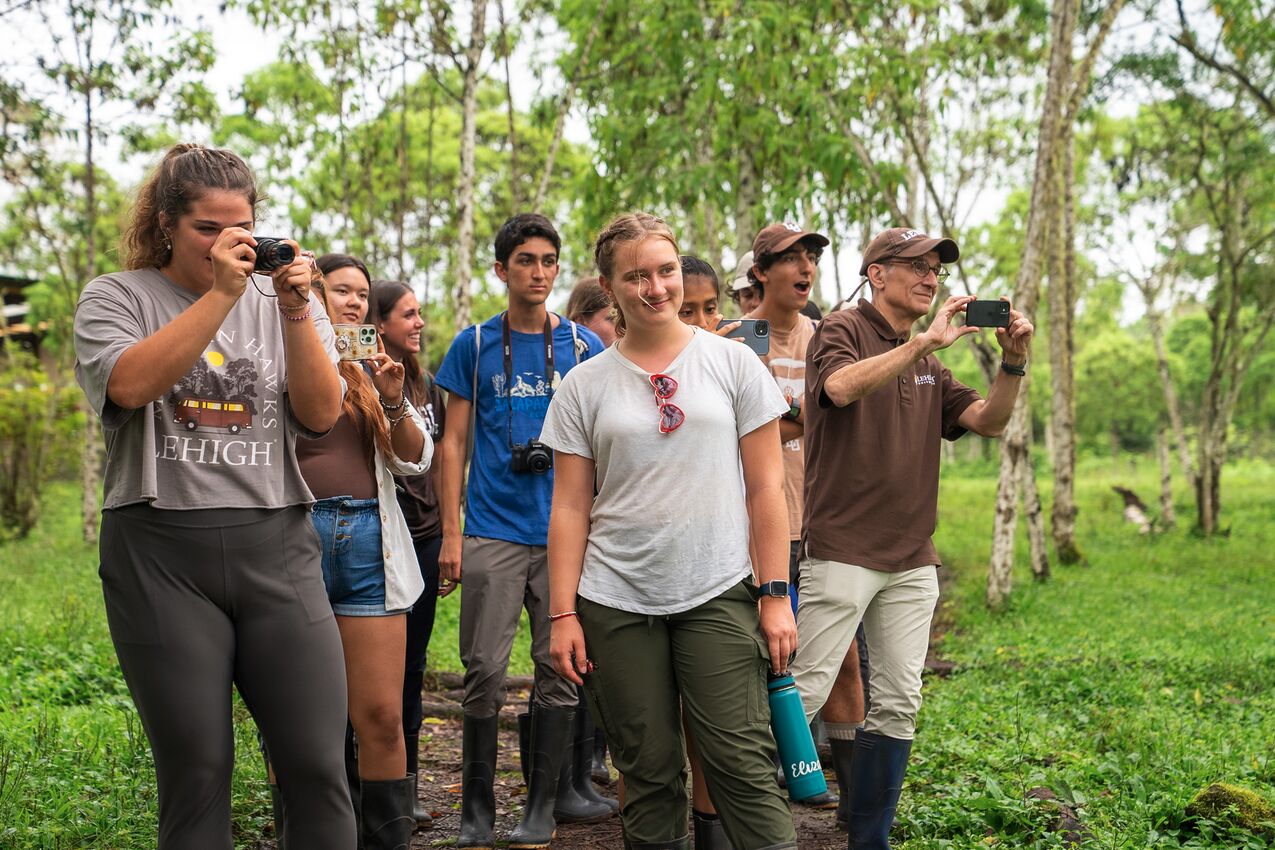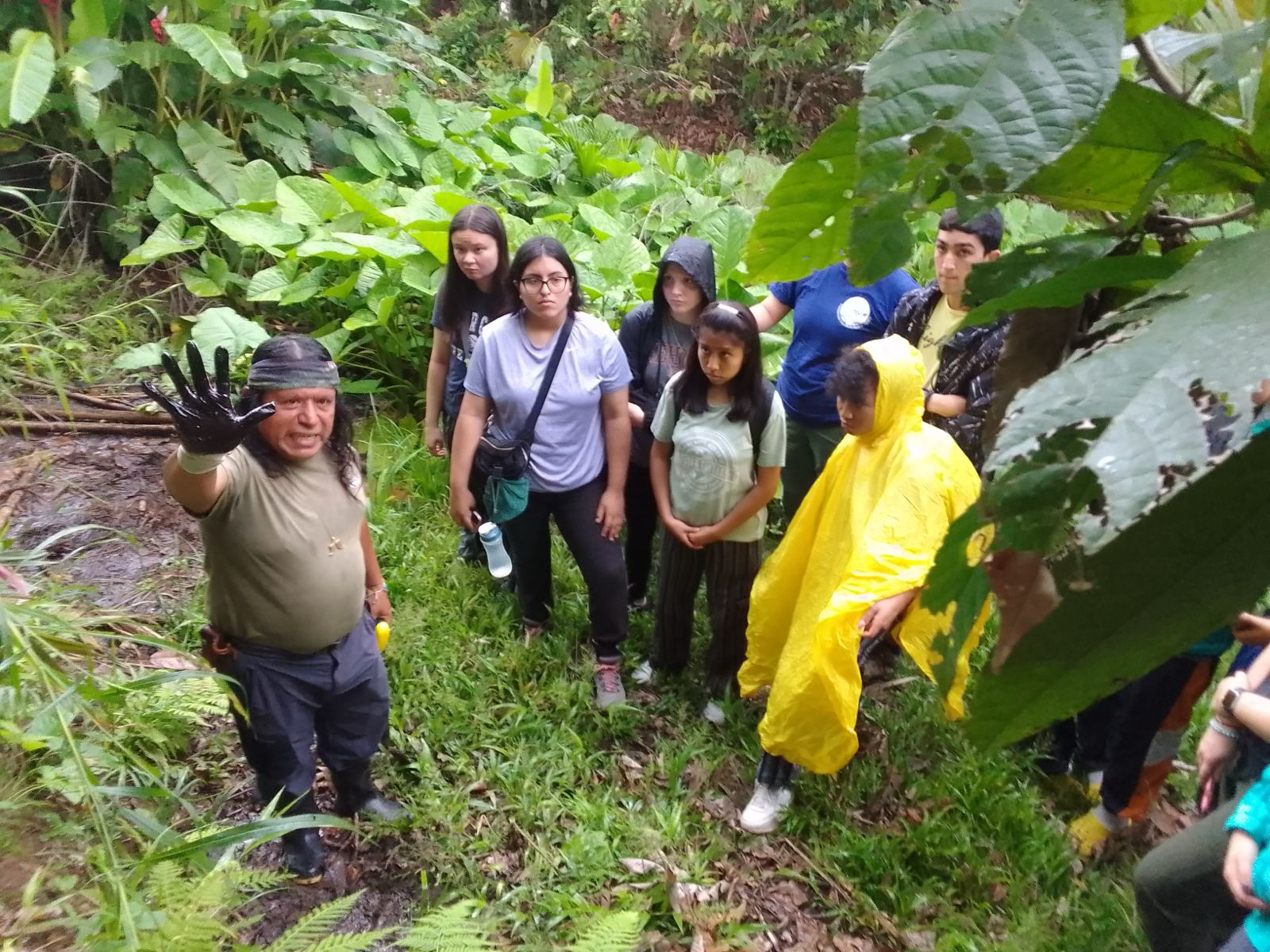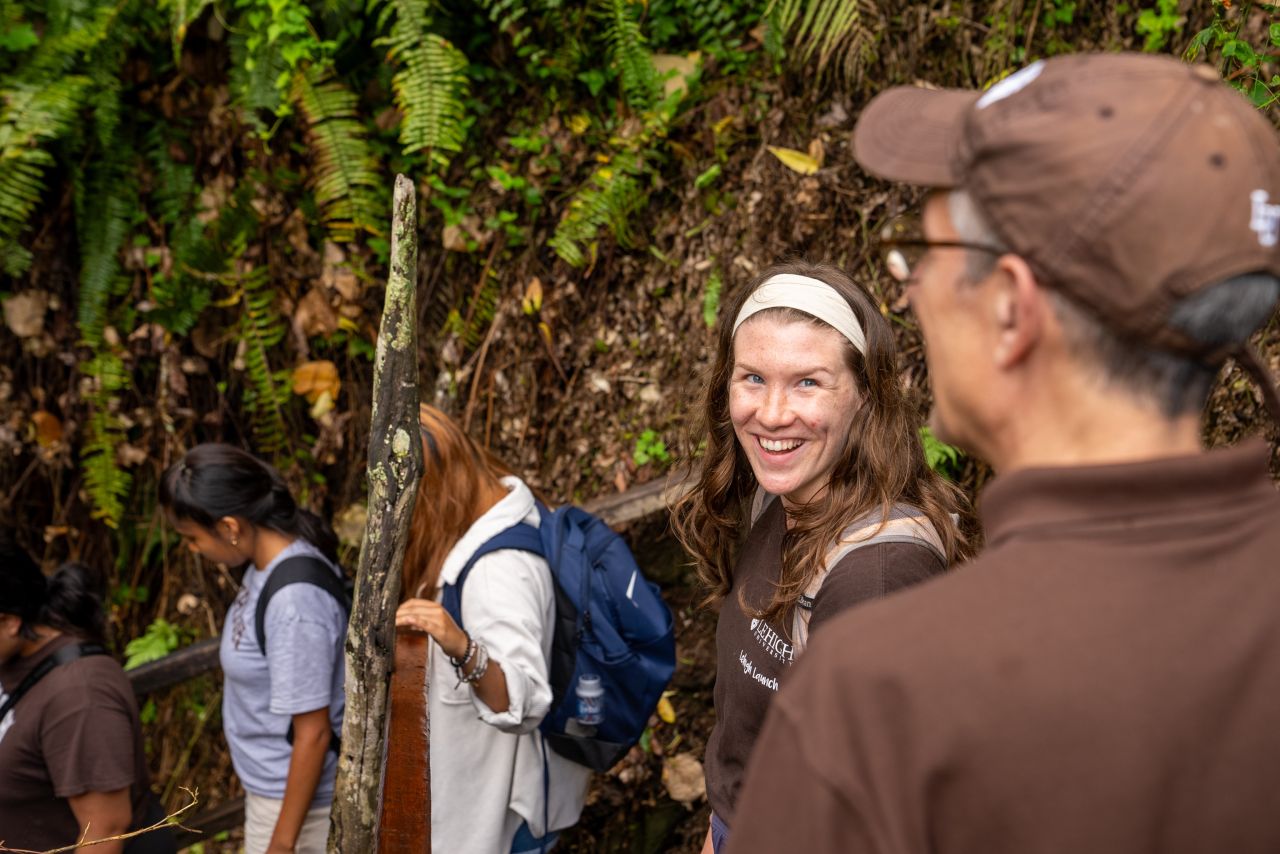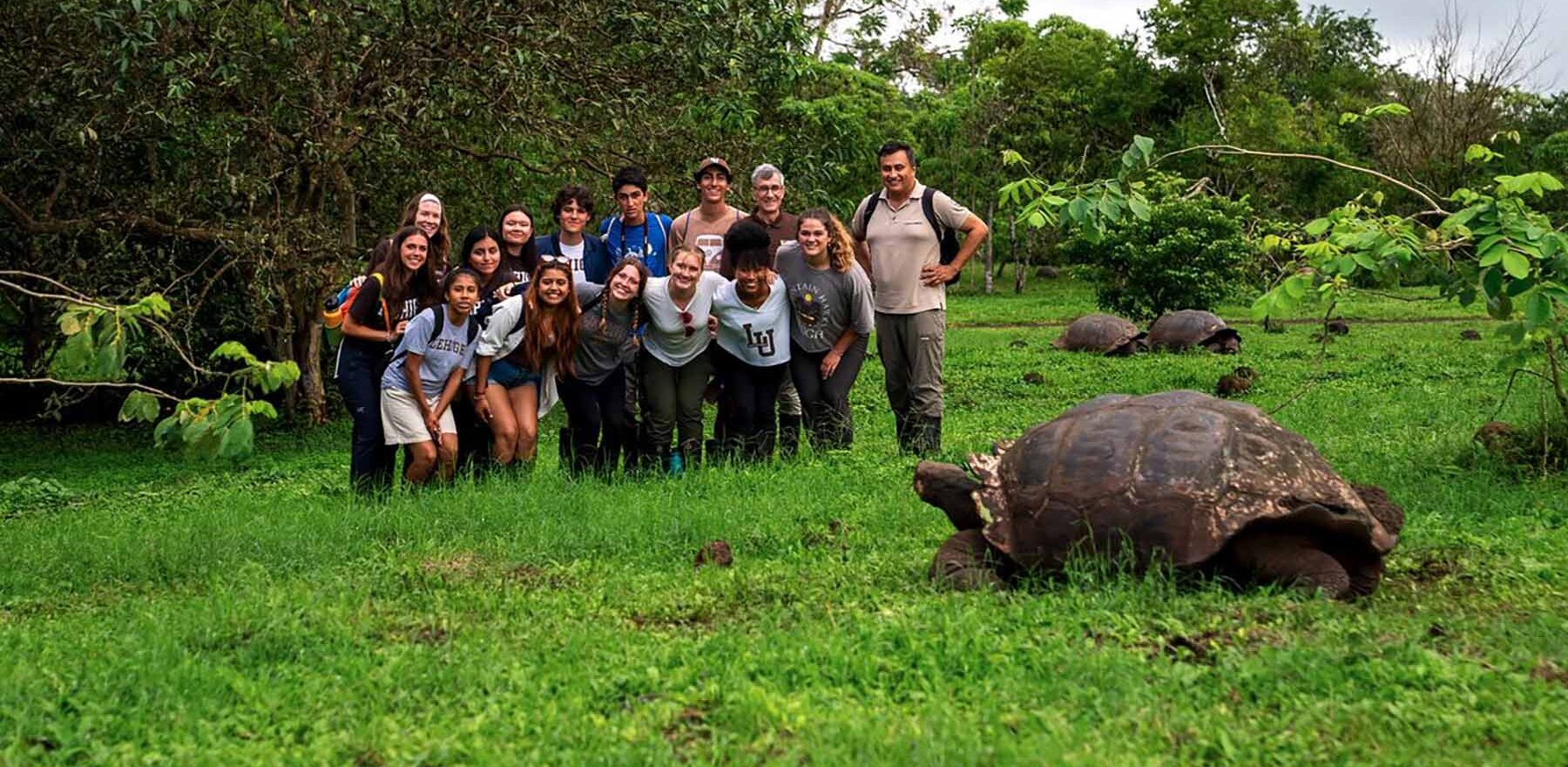Lehigh Launch Ecuador provided first-year Lehigh students the chance to study in the Amazon rain forests and the Galápagos Islands
Swimming in the Amazon. Studying the rainforests. Snorkeling with fish in the Galápagos. Living in Ecuadorian homestays. Observing giant tortoises in the wild.
These were just a few of the experiences Lehigh University students were afforded this year as part of Lehigh Launch Ecuador, an experiential, integrative learning experience for first-year Lehigh students.
“Lehigh Launch has helped me become more confident in what I want to study, but more importantly, it has helped me discover my ‘why,’ which I think is so special,” said McKenna Littleton ‘27, one of a dozen Lehigh students who participated in this year’s Lehigh Launch. “I also discovered that I am truly driven by people and a desire to learn from and experience different cultures.”
This marked the second consecutive year the Lehigh Launch program was offered in Ecuador. Next year it will move to Chile, continuing Lehigh’s long tradition of engagement with Latin American countries and scholars that dates back to the earliest years of the university.
Organized around a theme of adaptation, Lehigh Launch includes classes in social science, natural science, and a language course, all of which explore similar themes. Students also complete independent research programs in the Galápagos Islands related to waste management, sustainable farming, women and gender, and energy.
A Visit From the President

Lehigh President Joseph J. Helble ’82 visited the Lehigh Launch Ecuador students at the Galápagos on Dec. 2 as part of his visit to Latin America earlier this month. His first overseas trip since becoming Lehigh President, Helble visited Ecuador, Colombia, Guatemala, and Panama.
Helble and other Lehigh officials – including Cheryl Matheryl, vice president and vice provost for Lehigh’s Office of International Affairs, and Katy Rene, assistant director of study abroad – visited the students on Santa Cruz Island, where they did everything from visit a giant tortoise reserve to explore empty lava tunnels together.
“I was very impressed with the thoughtfulness, curiosity, and maturity of the Lehigh Launch Ecuador students and their knowledge of the complex environmental issues and research projects they were undertaking,” Helble said. “Visiting them was truly a highlight of our entire trip across Latin America.
Most of the Lehigh Launch Ecuador semester was spent in the capital city of Quito. The wide range of courses included evolutionary biology, Spanish, the study of indigenous cultures of Latin America, and an integrated seminar focused on environmental issues such as climate change, drilling in the Amazon, and conservation of biodiversity in the Galápagos.
Hands-On Learning Experiences

The students spent five days in the Amazon, including a visit to the Tiputini Research Center, where scientists study rainforest ecology. The station is famous for its rich plant life and seven species of monkeys living nearby, and the students were exposed to a variety of animal life during a nighttime boat ride, from capybaras to the pink river dolphin, which eats piranhas.
“A lot of students say swimming in the Amazon tributary was one of their favorite experiences,” said David Casagrande, associate professor of anthropology and faculty director for Lehigh Launch Ecuador. “They loved it, and while they were having that experience, they were also collecting data for their research projects.”
The students also saw parts of the Amazon that are drilled for oil, and visited communities that have been exposed to toxic pollutants as a result, leading to high rates of cancer and birth defects, Casagrande said. Visiting the posts where waste gas is flared off, they saw piles of millions of dead insects that are Amazon pollinators.
“It’s pretty brutal,” Casagrande said. “I mean, this is the harsh reality of what’s happening in Ecuador. It’s not just pristine rainforest. So the students aren’t just having fun and collecting biographical data; they’re having to process some pretty intense information.”
Lehigh Launch Ecuador offered a field trip each Friday of the program. For the Spanish class, the students took a bus to the market and ordered ingredients for a traditional Ecuadorian dish while speaking to the vendors in Spanish. For their anthropology class, they visited a museum in Quito’s historic center to see pre-Inca artifacts, Casagrande said.
They also visited an Amazon cloud forest with more than 100 species of birds, as well as a frog conservation center. In the Galápagos, they studied such topics as women’s rights, waste management, renewable energy, and sustainable agriculture. This sometimes involved studying lava lizards, or snorkeling to compare the structures of fish populations in different habitats.
Witnessing The Issues Firsthand

Littleton, who plans to study Global Studies and Spanish at the Lehigh College of Arts and Sciences, said the experiential learning was her favorite aspect of Lehigh Launch Ecuador, and that it helped her more fully understand the topics they discussed in class.
“Getting to go out and see these issues firsthand in the Amazon, experience Quichua culture in Otavalo, explore biodiversity in the different regions of Ecuador, and practice our Spanish with host families and local friends were incredibly valuable and rewarding learning experiences that took our learning way beyond classroom walls,” she said.
Michael Olivier ‘27, an international student from Cape Town in South Africa, said he was glad to have this experience so early in his academic career because it has piqued his interest in participating in other global programs at Lehigh.
“Lehigh Launch was a leap forward that has made me feel more confident as a global citizen. It has also boosted my confidence in handling any challenges that I may face throughout the rest of my time at Lehigh,” Olivier said.
Lehigh Launch Ecuador was the sister program to Lehigh Launch American West, which began in 2020 and features programs in the Rocky Mountains and field-based learning in Wyoming and New Mexico. Casagrande said he is glad Lehigh Launch will be offered in Chile next year because he feels it is important for the program to remain in Latin America.
“This program has helped attract students who otherwise might not have come to Lehigh,” Casagrande said. “Even students who didn’t get accepted to the program were impressed to see Lehigh cares so much about Latin America, and it reinforced their desire to be part of the Lehigh community.”
Applications are now open for students interested in Lehigh Launch Chile or Lehigh Launch American West in fall 2024. High school students and families interested in learning more or applying can read more at the Lehigh Launch website.
